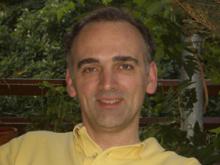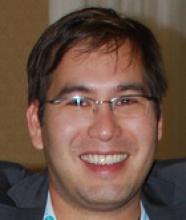- Home
- About
- Partners
- Newcastle University
- University of L'Aquila
- University of Manchester
- Alacris Teranostics GmbH
- University of Pavia
- Polygene
- Consiglio Nazionale delle Ricerche
- INSERM
- Certus Technology
- Charité Universitaet Medizin
- GATC Biotech
- University Medical Center Hamburg Eppendorf
- Evercyte GmbH
- University Hospital of Cologne
- PRIMM Srl
- University of Freiburg
- University of Antwerp
- Finovatis
- Research
- SYBIL at a glance
- Bone
- Growth plate
- Desbuquois dysplasia
- Diastrophic dysplasia
- MCDS
- Osteopetrosis
- Osteoporosis
- Osteogenesis imperfecta
- Prolidase deficiency
- PSACH and MED
- Systems biology
- SOPs
- Alcian Blue staining
- Bone measurements
- BrdU labelling
- Cell counting using ImageJ
- Chondrocyte extraction
- Cre genotyping protocol
- DMMB assay for sulphated proteoglycans
- Densitometry using ImageJ
- Double immunofluorescence
- Electron microscopy of cartilage - sample prep
- Extracting DNA for genotyping
- Grip strength measurement
- Histomorphometry on unon-decalcified bone samples
- Immunocytochemistry
- Immunofluorescence
- Immunohistochemistry
- Quantitative X-ray imaging on bones using Faxitron and ImageJ
- Skeletal preps
- TUNEL assay (Dead End Fluorimetric Kit, Promega)
- Toluidine Blue staining
- Toluidine Blue staining
- Von Kossa Gieson staining
- Wax embedding of cartilage tissue
- Contact Us
- News & Events
- Links
- Portal
Alacris Theranostics GmbH
 Alacris Theranostics GmbH is a company based in Berlin, founded by scientists from the Max Planck Institute of Molecular Genetics (MPI-MG) and specialising in developing new approaches in personalised medicine for cancer patient diagnosis, treatment and drug stratification. Alacris currently employs 14 scientists and uses NGS technologies coupled with computational modelling of tumour and somatic tissues in order to identify individualised therapies for cancer patients. Alacris has an exclusive world wide commercial license for the computational modelling of tumours and somatic tissues using the Modelling System ModCell™, a technology developed with MPI-MG. The company is currently building up the first NGS centre in Europe to be approved for clinical operations.
Alacris Theranostics GmbH is a company based in Berlin, founded by scientists from the Max Planck Institute of Molecular Genetics (MPI-MG) and specialising in developing new approaches in personalised medicine for cancer patient diagnosis, treatment and drug stratification. Alacris currently employs 14 scientists and uses NGS technologies coupled with computational modelling of tumour and somatic tissues in order to identify individualised therapies for cancer patients. Alacris has an exclusive world wide commercial license for the computational modelling of tumours and somatic tissues using the Modelling System ModCell™, a technology developed with MPI-MG. The company is currently building up the first NGS centre in Europe to be approved for clinical operations.
Alacris roles in SYBIL
Alacris current "Virtual Patent" model contains more than 40 cancer relevant signalling pathways reflecting about 3000 components corresponding to 670 genes that are connected by about 4500 reactions, giving a total number of over 5000 different kinetic parameters. Together with the sstems capability to integrate all types of descriptive data (including genomic, transcriptomic, proteomic data) the system allows the modelling of many different cell types as well as the prediction of drug responses. Within the SYBIL project, Alacris will adapt the "Virtual Patient" model to skeletal diseases. Based on omics data derived from cell culture and/or animal models adapted "Virtual Patient" is used to model fundamenta and complex pathways such as changes in cell phenotype (eg proliferation and apoptosis), to identify potential therapeutic targets for further validation (WP6). Alacris will also contribute to knowledge factory (WP5).
Facilities at ALACRiS include an outstanding expertise in systems biology modelling and NGS technologies.Alacris modelling/bioinformatics department has a dedicated IT infrastructure with over 370 CPU cores and 400TB of storage space for bioinformatics data analysis and systems modelling. ALACRiS staff has outstanding expertise in analsis of the NGS data, statistical evaluation of large data sets and of computational modelling of large interaction networks. ALACRiS also has a state-ofthe-art wet lab dedicated to NGS analysis using an Illumina HisSeq2000.
Alacris researchers involved in SYBIL
 Dr Bodo MH Lange (CEO) – Bodo has over 20 years of international research experience in the fields of cell biology, molecular biology and biochemistry at the University of Bonn, Germany; University of Kent, UK; University of Manchester UK; Kansai Research Institute, Kobe, Japan. EMBL Heidelberg, Germany. He has been a group leader at the Max Planck Institute for Molecular Genetics in Berlin for 7 years. As a project coordinator he was leading the German research consortium MUTANOM, comprising 10 research groups analyzing the consequence of cancer mutations on a Systems Biology level. As a head of biology at Alacris he is in charge of validation and optimisation of predictive drug treatment models and for cancer biomarker discovery and validation.
Dr Bodo MH Lange (CEO) – Bodo has over 20 years of international research experience in the fields of cell biology, molecular biology and biochemistry at the University of Bonn, Germany; University of Kent, UK; University of Manchester UK; Kansai Research Institute, Kobe, Japan. EMBL Heidelberg, Germany. He has been a group leader at the Max Planck Institute for Molecular Genetics in Berlin for 7 years. As a project coordinator he was leading the German research consortium MUTANOM, comprising 10 research groups analyzing the consequence of cancer mutations on a Systems Biology level. As a head of biology at Alacris he is in charge of validation and optimisation of predictive drug treatment models and for cancer biomarker discovery and validation.
 Dr Alexander Kühn – Alexander received his degree at the Free University in Berlin studying the functional properties of pathway development in the model organism Strongylocentrotus purpuratus and applying modelling techniques to elucidate pathway interactions in this organism. For the past two years he has been focused on applying novel molecular modelling technologies in clinical applications. Dr. Kühn is currently focused on extending and refining cancer models and on developing simulations to identify appropriate therapies based on these models and under SYBIL project he will be responsible foradapting the ModCell™ system to skeletal diseases.
Dr Alexander Kühn – Alexander received his degree at the Free University in Berlin studying the functional properties of pathway development in the model organism Strongylocentrotus purpuratus and applying modelling techniques to elucidate pathway interactions in this organism. For the past two years he has been focused on applying novel molecular modelling technologies in clinical applications. Dr. Kühn is currently focused on extending and refining cancer models and on developing simulations to identify appropriate therapies based on these models and under SYBIL project he will be responsible foradapting the ModCell™ system to skeletal diseases.
 Felix Dreher – Felix holds a degree in biology and bioinformatics and was postdoctoral fellow at the Max Planck Institute of Molecular Genetics in Berlin for six years where he worked on data integration platforms for systems biology collaborations and statistical analyses of large data sets. Durign the SYBIL project he will be in charge of statistical analyses of omis data and will support improvement of skeletal disease models.
Felix Dreher – Felix holds a degree in biology and bioinformatics and was postdoctoral fellow at the Max Planck Institute of Molecular Genetics in Berlin for six years where he worked on data integration platforms for systems biology collaborations and statistical analyses of large data sets. Durign the SYBIL project he will be in charge of statistical analyses of omis data and will support improvement of skeletal disease models.


